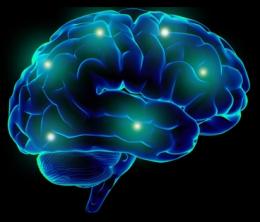Recent research shows that a well-rounded exercise program can help improve your cognitive function by enhancing areas of your brain that are associated with memory and learning. Researchers at Harvard Medical School found that exercise promotes a process called neurogenesis, which determines your brain’s ability to adapt and grow new brain cells.
Being physically active stimulates the production of a protein known as FNDC5, which, over time, stimulates the production of another protein called Brain Derived Neurotrophic Factor (BDNF). BDNF stimulates the growth of new nerves and synapses and preserves the survival of existing brain cells.
But this is just the tip of the iceberg.
Exercise Creates Large Cognitive Gains
Aside from promoting optimal brain health by triggering the release of BDNF, exercise also:
- Increases production of nerve-protecting compounds
- Improves and increases blood flow to your brain
- Improves the development and survival of neurons
- May help slow the development of Alzheimer’s disease
Exercise can benefit anyone – at any age. Even people who start a fitness regimen in their senior years can improve their cognitive function.
A team of researchers at the University of Edinburgh followed more than 600 people starting at age 70, who kept detailed logs of their everyday physical, mental, and social habits. After three years, the participants’ brains were imaged for age-related changes, such as brain shrinkage and damage to the white matter (the “wiring” of your brain’s communication system).
The team found that the seniors who engaged in the most physical exercise had the least amount of brain shrinkage.
In another study conducted by Kirk Erickson, PhD of the University of Pittsburgh, it was revealed that adults between 60 and 80 years old increased the volume of their hippocampus, the region of the brain that is essential for memory, by two percent. Erickson also found that people with higher fitness levels had a larger prefrontal cortex. He claimed that exercise is “one of the most promising non-pharmaceutical treatments to improve brain health.”
Your Overall Health Benefits from Exercise
Exercise also positively affects your immune system and your ability to fight chronic diseases. It helps you:
• Sleep better
• Lose, gain, or maintain weight (depending on your goal)
• Fight the common cold and flu and improve your resistance to infections
• Prevent and relieve chronic pain, including joint pain, osteoarthritis, and back and musculoskeletal pain
•Banish depression and improve your emotional health
Exercise can help improve your emotional health and is even known as one of the “secret weapons” to overcoming depression. Being physical active can help normalize insulin resistance and boost your natural “feel good” hormones and neurotransmitters that are linked to the mood control in your brain.
Exercise and a Healthy Diet Go Hand-in-Hand
Many people often forget that consuming the right type of food is also an important pillar of fitness. Remember: you can exercise all you want, but if you do not master what you eat, you will never achieve optimal health.
It is crucial that you know which foods provide the most bang for your buck in terms of supporting your fitness goals. Ideally, you should eat mostly wholesome, organic foods. Some of your best choices are avocados, coconuts and coconut oil, organic pastured meats, eggs, dairy, and high-quality whey protein.
At the same time, avoid all processed, nutritionally-deficient foods and beverages, including sugar-loaded sports drinks and energy drinks. You must also avoid or reduce all sugars (especially fructose) and grains.
About the Author
Elaine Rosales is a writer for Mercola.com, and is currently writing about fitness and diet tips that she can apply to her workout routine. She is also researching the benefits of exercising outdoors, as well as important reminders when doing so, such as staying protected from too much sun and using a safe mosquito repellent.









 YES! Contact me today to schedule a FREE no obligation consultation and trial workout.
YES! Contact me today to schedule a FREE no obligation consultation and trial workout.